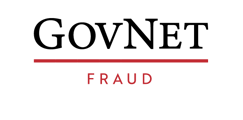In the fight against fraud, transparency and accountability are paramount. Whistleblower reporting systems play a crucial role in uncovering fraudulent activities within organisations, including public sector entities. In this blog post, we explore the importance of whistleblower reporting systems in fraud prevention, their impact on organisational culture, and best practices for implementing and managing these systems in the UK.
Exploring the Mechanisms of Whistleblower Reporting Systems
Whistleblower reporting systems provide employees, contractors, and other stakeholders with a confidential mechanism for reporting suspected misconduct, including fraud, corruption, and unethical behaviour. These systems enable individuals to raise concerns without fear of retaliation, empowering them to speak up when they witness wrongdoing within their organisation. By encouraging transparency and accountability, whistleblower reporting systems serve as an essential tool in fraud prevention and detection.
Promoting a Culture of Integrity
The presence of a whistleblower reporting system sends a clear message that unethical behaviour will not be tolerated within an organisation. By providing a safe and confidential avenue for reporting misconduct, organisations demonstrate their commitment to upholding integrity and ethical standards. Whistleblower reporting systems promote a culture of accountability, where employees feel empowered to act in the best interests of the organisation and its stakeholders.
Detecting Fraudulent Activities
Whistleblower reports often serve as early warning signs of fraudulent activities within an organisation. Employees who witness suspicious behaviour or irregularities can report their concerns through the whistleblower reporting system, prompting internal investigations and corrective actions. By acting on whistleblower reports promptly and thoroughly, organisations can identify and address fraudulent activities before they escalate, minimising the financial and reputational damage associated with fraud.
Legal Protections for Whistleblowers
In the UK, whistleblowers are protected by law from retaliation or victimisation for reporting misconduct in good faith. The Public Interest Disclosure Act (PIDA) provides legal protections for whistleblowers who report certain types of wrongdoing, including fraud, corruption, and health and safety violations. Organisations are prohibited from taking retaliatory action against whistleblowers, such as dismissal, demotion, or harassment. These legal protections encourage individuals to come forward with their concerns, knowing that they are safeguarded from adverse consequences.
Best Practices for Implementing Whistleblower Reporting Systems
When implementing whistleblower reporting systems, organisations should adhere to best practices to ensure their effectiveness and integrity. This includes providing multiple reporting channels to accommodate different preferences and circumstances, ensuring confidentiality and anonymity for whistleblowers, and establishing clear procedures for handling and investigating whistleblower reports. Organisations should also communicate openly about the existence of the whistleblower reporting system and provide training to employees on how to use it effectively.
Conclusion
Whistleblower reporting systems play a vital role in fraud prevention and detection within organisations, including public sector entities. By providing a confidential mechanism for reporting misconduct, promoting a culture of integrity, and detecting fraudulent activities early, whistleblower reporting systems contribute to transparency, accountability, and ethical conduct. Organisations in the UK should implement and manage whistleblower reporting systems effectively, adhering to best practices and legal requirements, to safeguard against fraud and uphold the public trust.

Nicole Lummis
After a career in Project Management, I realised how important it was for me to pursue a career with a more creative career path. I have a passion for creating engaging digital content whether through written content or the use of image, graphics or videos.




